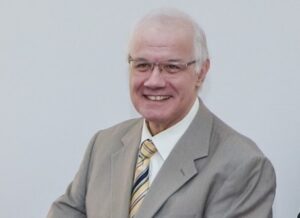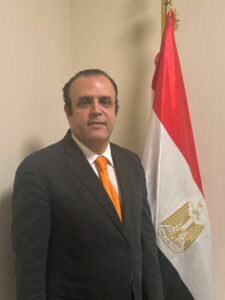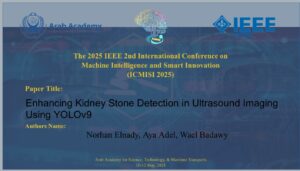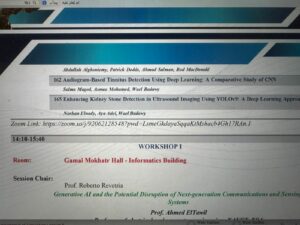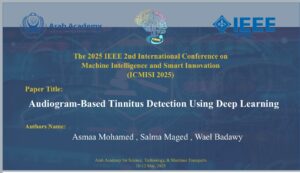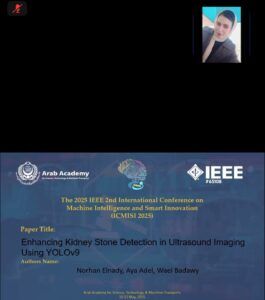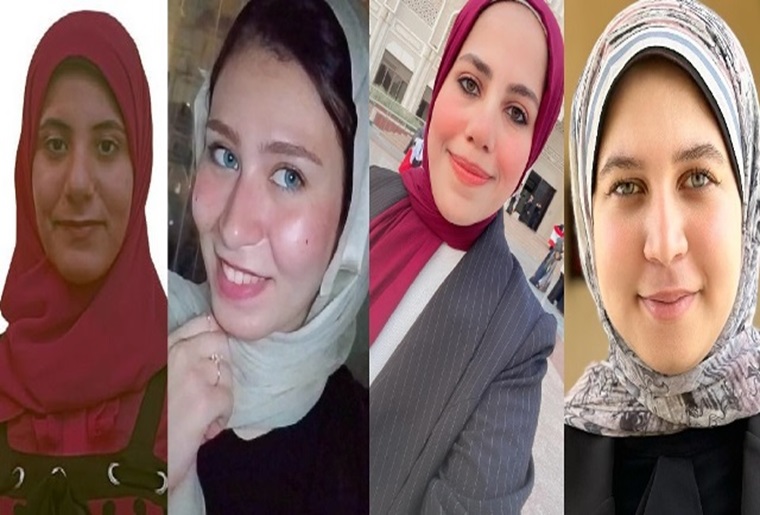Artificial Intelligence at the Egyptian Russian University publishes two research papers by its students at international conferences. Documents
Dr. Sherif Fakhry Mohamed Abdel Nabi, President of the Egyptian Russian University, announced that, within the framework of the Egyptian Russian University’s strategic direction towards supporting research excellence and enhancing integration between academic education and modern technology, the Faculty of Artificial Intelligence has achieved a new scientific accomplishment, represented by the acceptance and publication of two scientific papers at two prestigious international conferences affiliated with the Institute of Electrical and Electronics Engineers (IEEE). He noted that this achievement is the result of fruitful cooperation between the faculty’s students and faculty members, a step that reflects the faculty’s success in instilling a culture of applied scientific research and activating the role of students in serious research projects related to real-life issues. The students’ participation was supported by Dr. Mohamed Kamal Mustafa, Chairman of the University’s Board of Trustees.
The President of the Egyptian-Russian University noted that the first research paper, titled “Enhancing Kidney Stone Detection in Ultrasound Images Using a Machine Vision Model,” was accepted into the second international conference on “Artificial Intelligence and Smart Innovation.” A research team from the college participated in its preparation, including Nourhan El-Nady, a teaching assistant and graduate of the Artificial Intelligence Department; Aya Adel, an assistant lecturer; and Dr. Wael Badawi, Head of the Data Science Department. A group of students contributed to the data preparation and experimental modeling phase. He explained that the research aims to develop a smart model using computer vision techniques to analyze ultrasound images, contributing to the rapid and accurate detection of kidney stones, thereby supporting medical decision-making and improving the quality of healthcare.
In the same context, Dr. Hesham Fathy, Dean of the Faculty of Artificial Intelligence at the Egyptian Russian University, explained that the second research paper, titled “Tinnitus Detection Based on Audiograms Using Deep Learning: A Comparative Study of Neural Network Architectures,” was co-authored by Asmaa Mohamed, a senior student in the Artificial Intelligence Department; Salma Maged, a teaching assistant and graduate of the Data Science Department; and Dr. Wael Badawi, with academic supervision from faculty members at the college. He noted that the research compared several convolutional neural network models with the aim of identifying the most efficient model for automatically identifying tinnitus using audiogram data, paving the way for the development of smart tools to assist in accurate audiological diagnosis.
The Dean of the College of Artificial Intelligence at the Egyptian Russian University expressed his pride in this achievement, emphasizing that the college and university’s support for scientific research is at the heart of their vision to prepare a generation capable of innovation and contributing to building a knowledge economy. He praised the constructive cooperation between students and faculty members in producing this distinguished research work. He revealed that the College of Artificial Intelligence is a successful model for engaging its students in the scientific research system, noting that international publishing is no longer the exclusive domain of researchers, but rather a real opportunity for university students to engage early in the academic process and compete at the global level.
Commenting on this achievement, Dr. Saeed Hassan, Vice Dean of the College of Artificial Intelligence at the Egyptian Russian University, emphasized that this research reflects the college’s vision of creating an academic environment that stimulates research and development, based on the principle of student-faculty partnership, which fosters a culture of innovation and expands students’ scientific horizons.
The Vice Dean of the College of Artificial Intelligence at the Egyptian Russian University stated that this research excellence reflects the scientific discipline the college has embraced since its inception and its efforts to integrate the latest AI technologies into its educational and research content, providing students with real opportunities to participate in international forums.
The Vice Dean of the College of Artificial Intelligence at the Egyptian Russian University stated that this achievement reflects the university’s commitment to supporting its students to participate in scientific research with a real impact and compete in international forums. It also enhances the university’s local, regional, and international rankings in the fields of AI and its health applications.
Dr. Sameh Zarif, Assistant Professor and Head of the Artificial Intelligence Program at the College of Artificial Intelligence at the Egyptian Russian University, explained that these research achievements represent a realistic translation of the the college’s policy which is based on integrating education with scientific research by guiding students toward real and societal issues, encouraging them to think critically and innovate. He considers joint international publishing between students and faculty members a promising step in the path to academic excellence adopted by both the college and university.
The head of the Artificial Intelligence Program at the Faculty of Artificial Intelligence at the Egyptian Russian University stated that excellence in the field of artificial intelligence comes not only from teaching curricula, but also from guiding students toward innovation, applied research, and keeping pace with global developments. Publishing this research is the culmination of this approach.
